July 27, 2009
1 Comment
Opening Chapters of FLING
Isle of Skye 1906
Malcolm—Heather MacGregor’s grandfather on her mother’s side—told anyone who was willing to listen that his granddaughter hadn’t been born the usual way. She’d danced right off one of his paintings, landing in the family’s potato patch, except the land was too barren to produce much by the time she came along. It wasn’t a promising beginning.
She made the best of it. At least it hadn’t been an onion patch.
The family and villagers had heard the story so often they were sick of it. Yet no one doubted Heather’s origins (or Bubbles’, as she was later known). The Scots, reputed to have a sixth sense, know unpredictable things happen, and there’s no telling when something out of the ordinary will occur. They give lip service to Christianity, but the old religion hasn’t gone anywhere.
She grew up knowing that the sea is the province of Manannan mac Lir, King of the Land-Under-Wave. And the Tuatha De Danaan, the super-natural race, live in the glens, appearing to mortals as birds or animals. In front of the hearth, while stirring the broth, her granny sang to Heather from the time she was a babe in a cradle:
Wisdom of serpent be thine
Wisdom of raven be thine
Wisdom of valiant eagle….
The prayers didn’t help her much; at least her granny didn’t think so. Granny thought that wisdom would appear as good sense and judgment. As she told Heather’s mother, after whom Heather was named, “Maybe it will just take longer for wisdom to reach her in Skye.”
And what of Feather, her only daughter? She didn’t visit Skye until she was a middle-aged woman, accompanying her mother there to meet the remaining relatives. Yet Feather also seemed infected by the Scot’s sensibility, expressing through her art Manannan mac Lir’s underworld. It permeated everything she did or created.
Calgary, June 1996
The Air Canada Airbus soars through the stratosphere, a flying dinosaur carrying its passengers to Calgary. An oil-rich city, from the air, it seems to be levitating. Never quite losing its rural origins, its boundaries extend in all directions.
That’s how it appears to Feather.
She grips the armrests of her seat, eyes wedded to the seat-belt light that just flashed on, wondering what it portended for this trip home. Landing is always the worst part of returning to Calgary, the place where she grew up. The air currents near the airport make for a bumpy ride before the airplane finally touches down and she can breathe again. Not a great fan of flying, she believes if humans were meant to do it, they would have been born with wings. But her fears don’t stop her from traveling by air, even though turbulence causes her heart to do triple time. A weed to puff on would help settle her down. It feels like a giant has the plane in his clutches; he’ll shake it until everyone inside falls out.
But landing isn’t the only bad part about arriving in Calgary. At fifty-seven, Feather has lived in the San Francisco Bay area for more years than she lived in Canada. Dealing with Bubbles, her mother, who lives in a one-bedroom cottage that’s part of Bow Lodge, an old-folks’ center, puts Feather on edge. She loves her mum. But it’s very difficult to connect with her. The name suits Bubbles: She actually lives inside a one she’s never burst, making it nearly impossible for anyone to engage her, including Feather.
The two women talk on the phone several times a week, Feather trying to give Bubbles the emotional support she needs at this stage in her life. Since both of Feather’s half-brothers are too wrapped up in their own lives to reach out much, the responsibility falls on her shoulders to keep tabs on their mother. But most of the time she makes the phone calls from a sense of duty, not a spontaneous and sincere desire to talk to her mum. She always ends up the listener, Bubbles rarely asking questions about Feather’s life. It’s hard to be a wall, an object, and not a living, breathing person.
The only reason she is making this current trip home is because of Bubbles’ ninetieth birthday, a major event to celebrate. But she also had called Feather in a panic a few days earlier: “We need to fly to Mexico City after my party and pick up Mother’s ashes.” Feather knew the story of her grandmother taking off for Mexico City with Jimmy Campbell, the man who had employed her as a housekeeper in his Mount Royal home back in the 1920s. That’s about all she knew.
On the phone, she tried to keep her cool, remembering the ways Bubbles could distort things. “Hold on, your mum’s been dead for over 70 years. Why would her ashes turn up now?”
Bubbles said something about a dead letter office in Mexico City sending her a letter.
“A letter from the ‘dead-letter office in MC’?” Feather frowned. She’s expected this phone call for some time. Senility was bound to claim even her mum, who has seemed immortal to those who know her. The woman enjoys a zest for life not often seen among her peers. She still lives on her own, cleaning the house before her monthly housekeeper shows up so “the poor woman doesn’t have to clean up my messes.” She also does her own cooking, laundry, and shopping.
Nevertheless this latest story about her mother’s ashes crossed the line of believability. If Feather weren’t her mother’s daughter, she might have considered moving her to a different facility where she could get more attention. But just as the Air Canada Airbus reminds her of what now are almost mythic creatures, so too did Bubbles’ story seem plausible. Feather went along with Hamlet’s response to Horatio that “there are more things in heaven and earth, Horatio, than are dreamt of in your philosophy.” If nothing else, the ashes’ appearance made a good story to tell her friends.
* * *
Waiting for Bubbles to answer the door, Feather dangles her tennis racquet carrier from one shoulder, her straw tote bag from the other. She’s wearing an ankle length red peasant skirt with matching top and scuffed brown leather hiking boots. A yellow cotton triangle partly conceals her long dark auburn hair, now streaked with gray.
The door opens and before Feather can speak, words rush out of Bubbles’ mouth: “Mother’s ashes, they’re in the dead letter office. México City.” Feather steps inside, sets down her things, and gives her mum a hug. The corset she’s wearing prevents Feather from feeling her generous curves, and she can smell urine, the scent mixed with the cheap Evening in Paris perfume she is wearing. As usual, she feels overwhelmed by this woman who gave birth to her.
“Cool it, Mum. You’ll have a heart attack!”
Pure white hair a frizzed halo, scalp pink as a baby’s, she checks out Feather from head to foot and shakes her head. “I thought you’d be dressed up for my party.”
“I am dressed up!” Feather should be used to her mother’s scrutiny by now and her disapproval of anything that isn’t the latest in fashion. But she isn’t. It still stings when she doesn’t accept her as she is, a leftover hippie from the 60s.
Bubbles’ eyes settle on the racquet carrier. “When did you start playing the guitar, dear?”
“It’s not a guitar. It’s my tennis racquet.”
She swerves away from Feather and lurches toward the coffee table, snatching a creased, brown manila envelope from among the clutter there. “I’m serious! Mother’s ashes—” She hands her the letter. “Look: it says México City. But I can’t make out these words: Oficina de cartas perdidas. What do they mean?”
“I think it’s office of lost packages.” Or maybe it means office of lost souls. Given the little she knows of her grannie, she seemed a lost soul, unable to adapt to life in the new world after leaving Skye. Maybe she does need to be rescued, locked in some in-between world for the sins she committed against her children, leaving them in the dust to follow her lover south of the border. The feminist in Feather applauds her grannie for striking out on her own and going against the flow. But the mother in her knows the damage she did by abandoning her kids. She left much sorrow in her wake. Bubbles seem stuck psychologically at the age she was when her mother left, and Feather’s uncles didn’t fare well either. Their lives were hollow shells, like something discarded on the beach. Still, she can’t be too harsh on her grandmother, a woman who followed her heart, not always an easy thing to do.
Feather flops onto the love seat, sending up a cloud of dust, and reads the letter aloud: “Dear Madam: There big box dead letter office address you name. Come get box. Mrs. Heather MacDonald ashes. Nun found box and note for family. Have box many years. No send ashes by mail for health reasons. When you pick up?”
“Granny’s ashes? She popped off years ago.”
Bubbles paces, the bunny ears on her slippers flopping back and forth, almost tripping her. “You’ve got to take me to México City. It’ll be like old times. Traveling together.”
Feather throws up her hands. “México City? No way. They kill tourists there. Anyway, I already have plans for the summer. I’m doing research in Puerto Vallarta and San Miguel de Allende on matriarchal cultures.” She’s been interested in spending more time in Mexico since doing her earth goddess series of sculptures. The matriarchy still lives there, hidden under the layers of modern life. There’s something very primitive hovering in that country.
Bubbles scowls. “I can’t just leave her in a foreign country. Besides I could get killed here too. Gangs are attacking old people all the time. Never mind, I’ll get Buddy to take me.”
“Buddy! Jesus, Mum, he can’t handle a trip like that. I’d be a nervous wreck—the two of you wandering around México together….” She thinks of her younger brother and the mental condition that the doctors can’t quite diagnose: psychosis, schizophrenia, whatever. It’s kept him from living a normal life, and at fifty he’s still totally dependent on his mother.
Bubbles plants herself in front of Feather, hands on her hips. “I’m surprised at you. I thought you’d jump at the chance to travel there with me.” She gets a hurt look on her face and purses her Betty Boop-painted lips, pouting.
“You’re too old, Mum. What if you get sick?”
She stamps her foot and the bunny ears quiver. “Too old! Mother went there and she wasn’t too old.”
“She wasn’t ninety.”
“That’s not so old. You know I don’t look or feel my age.”
Feather nods, wishing she were like other mothers and did look and act her age. “I’d worry the whole time.”
“We can’t leave Mother with those foreigners.” Bubbles’ voice falters, and tears creep down her cheeks. “I can’t go to my grave in peace if she isn’t buried properly—”
Feather throws up her hands. “Okay! Okay! I’ll take you. But I’ve already paid for a condo in Puerto Vallarta for a week. I can’t back out now or I’ll lose a lot of money. And I’ve signed up for art classes in San Miguel de Allende after that….”
Bubbles frowns. “You’ve always got other plans. You never have time for me….”
“I said I’d take you….”
“You’re always telling me to ‘go with the flow.’ But you never do.”
“You’re not listening! You can join me in PV and San Miguel. But we can’t stay in México City for more than a few days….”
“Just long enough to get the ashes, I promise,” Bubbles says.
“Don’t forget we’ll be doing a lot of flying. San Francisco. Puerto Vallarta. Mexico City. You hate planes. And we have to leave right after your party.”
“Don’t worry. I’m planning to win a Ford Bronco. I was hoping you’d drive.”
Feather laughs. “Yeah, right.”
Though Feather hadn’t included the capital in her travel plans because of the dangers lurking there, she realizes it could be the centerpiece for her summer research. An eight-ton disc-like statue of the moon goddess that the Aztecs worshipped stands in the Great Temple in México City. Carlos Castenada’s books have further convinced her there’s something mysterious going on south of the border. That’s why she hoped to find a shaman—male or female—who could guide her. That had been her plan until Bubbles talked Feather into this mad expedition to pick up her mother’s ashes. Feather hadn’t anticipated Bubbles being the shaman she sought, but who knows. In Mexico, anything could happen.
Still, she feels her wings have been clipped again. Weighed down by Bubbles’ demand to travel with her, Feather also feels guilty for resenting it, knowing this could be their last trip together. Even so, she had anticipated a summer free of responsibility, time to explore and expand, trying out new modes of art. Pushing the envelope. Throwing off the restraints of teaching and being in control.
Bubbles’ abundant energy suddenly makes her feel old, though she’s only 57. Only. It dawns on her that she’ll also be orphaned one of these days. Though Bubbles seems immortal at times, she can’t go on forever. That thought makes Feather think of the upcoming Mexico trip differently. It could be an opportunity for them to make a deeper connection before…. She doesn’t want to finish the sentence.
She looks around the cluttered cottage, inhaling the musty odor that’s part decaying flesh and part rotting food that Bubbles has forgotten in the fridge. Doilies and afghans that she’s crocheted cover every available surface. Photos of Feather and her brothers at younger ages sit on top of the TV. And a forest of 90th birthday cards covers the coffee table. The birthday has brought an outpouring of greetings from relatives in Scotland, from friends far and wide—even from Jean Chretien, Canada’s Prime Minister.
Bubbles rummages through the box of See’s chocolates, a gift from Feather. Her pudgy fingers select two chewy, soft-centered ones. She pops them into her mouth, cheeks puffing out like a chipmunk’s. Then she turns on the TV. It flickers and lines zigzag across the screen, distorting the actors’ features. She grips the remote control in her right hand, jiggling it, aiming at the set, trying to unscramble the images. A fake green stone glints on her pinkie, and her eyebrows meet in a “V” of vexation.
Feather knows her mother’s routine so well that she can picture what her days are like. She’s just rushed home from cruising The Hudson’s Bay, her hangout for years (the cafeteria on the 5th floor, the beauty salon on the 2nd, and all the new fashions she likes to inspect), to watch The Young and the Restless, her favorite program.
Eloise, a nurse, has lost her job at a hospital because she’s been caught stealing her patients’ drugs and selling them on the side. Bubbles shakes her head. “I never would have suspected the nurse of stealing. She seemed like such a nice girl, though she was living a pretty fast life, running around with drug addicts who smoked mary something. It would break my heart if you ever did those things.”
Feather conceals a smile and grabs a chocolate while there are still a few left. “Mary something” is one of her good friends, relaxing Feather during tense times and expanding her vision, giving her insight into things she otherwise would overlook. Bubbles switches off the set, heaves herself off the chesterfield, and patters into the kitchen in her pink bunny slippers. Feather says, “Where’d you find the slippers?”
“Where do you think? The Bay. I thought they’d be a nice gift for one of my granddaughters. But the slippers are too warm and cozy to give up. Those girls get enough from me anyway. And what do I get in return? Nothing but great-grandchildren. They produce babies as if they were rabbits themselves, all from different fathers.”
Feather follows Bubbles into the tiny kitchen, amazed that at 90 she still has so much energy. And spunk. Amazed too that they are daughter and mother. The two of them are so different, physically and otherwise.
Bubbles stops in front of the fridge. “Did you know Blessed, the youngest girl, had twins the last time she got pregnant? I had twins myself once. Stillborn. Beautiful babies. Boys. She must get it from me.”
Feather frowns: “Get what?”
“You know, the ability to have so many babies. I guess I should be grateful. But at my age, each new great-grandchild is like a nail in my coffin. Well, I refuse to think about that. I’ve still got a lot of living to do. One of my grannies lived till she was 105. I’m going to outlive her.”
Feather has heard these stories so many times that it’s hard to pay attention any longer: The dead twins. The granny that lived to 105. Another reason why she doesn’t look forward to spending a lot of time with her mother this summer.
Feather watches her open the fridge door. A sour odor overpowers the room. Bubbles pretends to gag and says, “It reminds me of Ernie, that no good Englishman. I should’ve known better than to marry an Englishman after what they did to the Scots—my people. My father and granda would turn over in the grave if they knew. Was Ernie my third or fourth spouse? I can’t keep track. Of course I didn’t marry Manny, but we were as good as married. Lived common-law for more years than I can remember.”
* * *
Bubbles hums “I’m gonna wash that man right out of my hair,” relieved that it’s Ernie who is now underground and not herself. They buried him just a few weeks earlier. The two had tied the knot when she was seventy, in her prime. Met at a singles’ dance and it was love at first sight. Nine years her junior, he was quite a dresser in his white tux with a red bow tie and red cummerbund. All the women wanted to get their hands on him, but he chose her.
If she had known then what she knows now, she never would have married the bastard. He couldn’t get it up the whole time they were together, and he ran her ragged. It’s a wonder she isn’t in the grave and not him. “Mother, get me my dinner. Mother, I need some razor blades.” Mother this, Mother that. It drove her crazy.
He also put a good dent in her savings.
When she viewed him for the last time at the funeral home, she asked for a few minutes alone with the body, wanting to leave something for him to remember her by. The others tiptoed out of the viewing room, and she stared for a few minutes at that face she’d grown to hate. The crooked Popeye nose with the black hair growing out of the nostrils. The mouth permanently twisted in a cruel smirk. Well, she’d get the last laugh on him. A waste of twenty good years. She could have met someone else and had a nice life.
She can still see Ernie sitting in that lumpy chair of his. She covered the ugly thing with one of her crocheted afghans, geometric patterns of orange and yellow and rust partially hiding it. The top of a concealed rum bottle is sticking up in the space between the chair’s arm and the cushion, and a Penthouse magazine is open on the footstool in front of him. Gray hairs on his chest show through the ‘V’ in the navy blue bathrobe. He wore it constantly in his last years, no longer bothering to dress. He hollers, “Mother, get me some milk, my ulcer’s acting up.”
Well, his ulcer won’t act up any more.
Bubbles had leaned over the coffin and picked up his left hand, the fingers stiff and resisting. She wrangled with the wedding band she bought him until it flew off, almost landing in his open mouth. She snatched it away and dropped it into her coat pocket. She didn’t want Ernie going to the grave with her ring on his finger.
She shoved his hand back under the white satin sheet covering the lower half of his body, opened her purse, unfolded the Kleenex she’d tucked in there, and carefully removed a razor blade. Gripping it between thumb and forefinger, she slipped it under his shirt, next to his heart. He wouldn’t need razor blades where he was going, but she left him one, just in case.
Determined to put him out of her mind, she grabs a jar of maraschino cherries from the fridge, slams the door, drops the lid on the kitchen table, and shuffles to the living room, popping cherries into her mouth and swallowing them whole. Some of the red juice dribbles down the creases on both sides of her mouth. The thought that her own mother might still be alive makes sense. No one saw the body. Bubbles just assumed it was buried in Mexico. Maybe she didn’t die after all. Maybe she’s remembered her birthday.
A whirl of movement, Bubbles pauses in front of Feather, who has settled on the love seat, and says, “You know, strange things have happened in our family. My granda, Malcolm MacGregor, I’ve told you about him. Mother’s father, a portrait and landscape painter, he died three times. Each time they put him in the coffin and were ready to bury him, he sat up, scaring everyone to death. He had lead poisoning from the paint he used. It made him appear dead when he wasn’t. The last time it happened, the family didn’t believe he really was gone, so they kept his body in the house for two weeks—until it started smelling.”
“What a great story, Mum. You never told me that one before.”
“You’re usually too wrapped up in your art to listen to me anyway.”
“Not true. I listen to you all the time.”
Bubbles turns away, her feet moving to the rhythms of “La Cucarocha,” a tune that she hums. She dances around the room in the arms of a handsome Mexican with a thin black mustache. He’s wearing one of those floppy sombreros. After bumping into the TV set, she falls, out of breath, onto the couch, laughing, and grabs the letter from Mexico’s dead letter office, fanning her face with it, feeling hot suddenly, though she shouldn’t be getting hot flashes at her age. She still can’t believe it. Her mother’s ashes? She’s heard how bad the mail service can be in México from Feather, who sent her a post card once from Puerto Vallarta that reached her two years later. Everything mañana. But seventy years! Holy smoke. It’s just like her mother to make a surprise visit.
Of course, Feather is full of surprises too. Once, when she was driving up from California, she detoured to visit a sweat lodge in Summerland, B.C. Bubbles waited a week that time for her to show up. She changed her name from Heather to Feather not long after, hurting Bubbles’ feelings. After all, it was a family name.
She had named her daughter Heather after herself and her mother so they all could have the same initials—HHH. The letters look like a fence, or three women with their arms around each other’s waists in a cancan line. Bubbles could have been a dancer herself. It came naturally to her. She could do a highland fling or a sword dance with the best of them. Her father put an end to that idea. “No daughter of mine is going on the stage!” She tried to teach Feather the steps, but that girl could never get them right.
Never mind. They can keep their stage. She’s always up dancing before the music even starts, the life of the party. Dancing is in her bones. She heaves herself off the sofa and glides into the bedroom. Her bones creak a little as she slips nylon stockings over her legs. She calls out to Feather, “Look, I’ve still got pretty good gams. Strong. Shapely.” Not like Feather’s spindly legs. She wonders how she can walk on those two sticks. Bubbles hooks the nylons onto her girdle, her body shaped a little like the rain barrels they kept on the farm. What can you expect at her age? The flesh has a mind of its own, and rain barrels don’t have legs like hers. They also don’t bend easily.
“I need you to help me put on my shoes.”
Feather comes into the room and kneels on the floor. Bubbles hands her the new blue satin shoes she bought for the occasion and Feather slips her mother’s feet into them. “I bought them with money Ernie left me.”
“I thought he left everything to his two boys.”
Bubbles snorts. “They aren’t boys. They’re both in their forties. I went to an attorney and claimed what was rightly mine. I didn’t nurse and cook for him all those years for nothing. I was entitled to something in return. Besides, he used up all my money.”
“Good for you! You do deserve something from him.”
Bubbles stands up and admires the shoes. They match her blue dress, flounces of chiffon setting off her hips. Her grandson Marvel, one of Abbot’s brood, had given her a discarded gown of his to wear, but it was too small for her. Besides, it wasn’t right to wear her grandson’s clothes, and she wanted a new dress. You don’t turn ninety every day.
She twirls in front of the mirror, preening. “Not bad for an old bird, eh,” she cackles.
Feather laughs. “You don’t look like an old bird to me.”
Bubbles agrees. Her hairdresser claims she doesn’t look a day over seventy, and she doesn’t feel it. Not any more. She gets a sharp pain in her side now and then, and she has lots of gas. Her doctor said she should have some tests done, but tests are for school kids. She’s too old for that stuff. She doesn’t need a herd of doctors poking at her.
Otherwise, she’s fit as a fiddle, and she’s had a new zest for life since Ernie died. His dying freed her, made her feel indestructible in some way. She started writing poetry again and baking. She made the best pastry the day of Ernie’s funeral, flaky and light. She froze some of the apple pie she made and has been feeding off it ever since.
A little of that flaky piecrust would taste good right now. She hasn’t had any lunch. “Want some pie, dear?”
“How old is it?”
“It’s still good. I froze it.”
They both head for the kitchen. On the way Bubbles notices her father’s picture on the wall. He would be proud of her, outliving everyone, though he probably would have skipped the party. He’d be holed up with a book somewhere, hiding himself away like a hermit. Some of the books were in Latin or Greek. A real scholar. That’s what drove her mother away—he never talked to her. That and her father’s temper. He could wither you with a look when he got angry.
She’s almost forgotten about her mother as well as Feather, who is waiting to take her to the party. Bubbles says, “I’m going to pack my suitcase right now so we can make a fast getaway.”
On the Road
San Francisco, 1996
During her mother’s 90th birthday party, Feather felt she was the princess serving the queen, but for once she didn’t mind being upstaged, though that hasn’t always been the case. When Feather was a girl, Bubbles overshadowed her in everything, from sewing to cooking to attracting men. She had to compete constantly, an underlying current in their relationship. But Bubbles’ need to be the center of attention gets old. It’s the main reason Feather has kept a good distance geographically between herself and this woman who gave birth to her. She needed that space in order to find herself. It’s also why she changed her name. It was too much of a burden to be another Heather rather than the distinctive Feather.
Pushing away these painful memories, she tried to get caught up in the festivities. Streamers and balloons cascaded from the ceiling and hung from the birthday-girl’s chair, a throne the Lodge manager provided for these events. Feather had hired a piper, and Bubbles was up dancing before he could begin playing. She even sang a few Scottish songs, a capella, blasting them out so the walls shivered and everyone’s eardrums hurt. A few of Feather’s friends turned up who had known her mother since childhood. The rest of the partiers lived at the Lodge and enjoyed a free bash, downing the non-alcoholic punch and dainty party sandwiches the kitchen staff provided.
After the celebration, the focus quickly shifts to leaving for Mexico with a stopover in San Francisco on the way. Bubbles didn’t win the Ford Bronco, so they’ll have to fly. She claimed some foreigner—a Pakistani in Southeast Calgary—had the winning ticket. On the way to the airport, her eyebrows meet in a frown. She nudges Feather’s arm: “It was fixed. I’m sure I had the winning number.”
Feather shakes her head and rolls her eyes. “Please! They can’t fix a lottery.”
She frowns. “Don’t worry. They can do it. I’ve had the same thing happen at bingo. I’ll have all my rows filled and someone calls ‘bingo’ when it should be mine. I always win. You know that.”
Feather laughs and pats her arm. “You can’t lose. They’re either senile or have Alzheimer’s. You’re the only one with all her marbles.”
She gets a hurt look on her face and stares out at the foothills. “You make it sound like I’m cheating. I win fair and square. They cheat me half the time.”
“They?”
“You know, the ones who run the game. They have it in for me because I’m lucky. I just made $300 the other day at The Bay. I won the lottery again.”
“Yeah? How many tickets did you buy to win?”
Her face turns red, and she spits out, “You want to spoil everything. You can’t stand to think your mother’s just naturally lucky. I wouldn’t have been around all these years if I didn’t have more than a little luck.” She presses her lips tightly together and crosses her arms over her breasts. She’s not going to tell Feather what happened the previous week.
Helen, one of the women who lived at the Lodge, noticed Bubbles hadn’t put up 10 cents for one of the cards she was playing. She shook her fist in Helen’s face and said, “You’re a lying bitch. You’re just trying to get me in trouble. Here’s my dime.” And she threw it at Helen. The dime popped into her open mouth. Helen spit it on the floor. Bubbles shoved her bingo cards across the table. “Here, take these too. Maybe you’ll be a winner this time with my cards.”
One of the attendants called the matron over, and she told Bubbles she couldn’t play bingo for the rest of the summer. To teach her a lesson. Some lesson. She wasn’t going to hang around the lodge all summer and brood. Anyway, if she wanted to, she had other places where she could play bingo.
She stares at Feather’s face, trying to figure out who her father might have been. That girl doesn’t appreciate all she’s done for her. Bubbles should have given her up. That’s what everyone wanted her to do: “You can’t keep a baby out of wedlock.” They could keep their wedlock. Who ever thought of that word? Some busybody who didn’t have anything better to do.
No one was going to tell her what to do with her daughter, illegitimate or not. It hadn’t been easy though. She had to lie and tell people Feather’s father was dead. Well, it was as good as true. He’d taken a powder fast when he found out he’d knocked her up. She never saw him again and can’t even remember his name.
She’s so mad now at Feather that she has a good mind to call off the trip. Except she can’t let down her own mother. It’s the least she can do for her. See that she gets a decent burial with her own people. Back in Scotland. The Isle of Skye.
The only thing Bubbles likes about flying, besides the food, is the ride in the wheelchair from the plane to the car. She doesn’t need a wheelchair. But it makes her feel like a queen to be treated that way, pushed by an airport employee past everyone. She waves at the others from her flight, remembering how the Queen Mother did it when she visited Calgary, just a slight movement of the hand, as if giving a benediction.
And then they reach Feather’s car, a 1965 white Volvo. Bubbles scowls. “You haven’t bought a new car yet?”
“Too attached to this one. It’s real steel.”
To Bubbles it looks like an army tank. It has no style. Not like the Ford Bronco she wanted to win. Pushing the airport attendant’s hand off her arm, she climbs inside, swallowed by the Volvo, a fringe of white hair barely visible through the window. The leather on the seats looks shabby, worn. She doesn’t want old things around her now. She likes new, shiny surfaces—unmarred, unlined.
A young man would suit her fine.
Of course, Ernie had been nine years younger. She had thought they were made for each other, until (at Feather’s urging) Bubbles made it clear to him that her kids would inherit whatever money she had. She had never seen anyone change so fast. One minute they were lovey-dovey and it was honey this and honey that. The next minute he was growling at her from his chair in front of the TV, and he never stopped the whole 20 years they were married. But it was worth it just to be called Mrs. again. It made her feel legitimate to have a husband.
She’d give anything to find a man to love before she dies. She doesn’t want to die alone.
Feather unloads her mother and the luggage at her house in San Geronimo and is off again. “Back in an hour or so, Mamacita. Need to check my mail at the College and pick up my paycheck.”
Bubbles doesn’t mind being left alone, but she wishes Feather didn’t live in the sticks. She can’t get on a bus and head to The Bay. She makes the best of it, poking around the house and studio, opening closet and cupboard doors, rifling through bureaus. She isn’t snooping; she’d never do that. She has a right to look at her daughter’s things. Some official-looking documents on Feather’s desk catch Bubbles’ eye. Divorce papers. She’ll be catching up soon with Bubbles and all her husbands.
Two cockatiels swoop down and land on her head, chattering in her ear. Their sharp little feet dig into her scalp, drawing blood, messing up her hair. She swats at them. “Get away, you dirty things. Pooping on me.” She doesn’t like this zoo Feather lives in. Thank god she got rid of that monkey. It peed on everything and was always playing with its pecker. It got Bubbles going.
The birds follow her into the bathroom and perch on the shower curtain rod. She opens the medicine chest and finds a picture of Sage behind the Kaopectate. It’s a shame that Feather divorced him. He felt like a son to Bubbles; he understood her the way her own sons didn’t. He also wrote beautiful poems dedicated to her. It makes her weep just to think of him—a good-looking, wonderful guy. Feather never should have let him get away. It’s won’t be easy for her to meet someone at her age.
Both of them are foot loose and fancy free now. Maybe they’ll meet an unattached father and son on their trip to México. Of course, Bubbles will get the son and Feather the father. Funny, feather and father sound a lot alike. Amazing what one little letter can do. Change the whole meaning of a word. She could have been a famous poet herself. When she’s inspired, the poetry just flows from her like syrup from maple trees. When Ernie had died, she’d written a poem to her dear husband:
Your love will always keep me warm,
as long as I’m alive.
And when I think of your tender voice,
it makes me want to cry.
Though you are gone and I am here,
we’ll never be apart.
As long as roses bloom in spring,
you’ll be within my heart.
She never shed a tear over Ernie, but it sounded good in the poem.
Well, her life isn’t over yet. There’s still time to make her mark.
She steps into the backyard, clucking over the weeds, flowers struggling to take hold. From the outside, Feather’s studio looks like the barn they had on the farm—rough, weathered wood. A second level that could have been a hayloft. She enters Feather’s workspace and looks around. Bubbles can’t understand why she spends so much time making unrecognizable things. If Feather sculpted horses or people, made them look real, that would make sense. But most of the sculptures don’t resemble anything Bubbles has seen in her long life.
She walks up to one piece that towers over her. Knuckles leaps out from behind it and hisses at her, baring its teeth. She picks up a stick and swats at the cat, missing. Feather’s cats give Bubbles the creeps, sneaking around. Getting into everything. Taking over her bed. It isn’t right. They should be in the wilds where they belong. Bubbles and the cat stand there eyeing each other. Knuckles backs down first, but makes one last jab in the air with its paw, claws exposed, before climbing into the loft and watching her from above.
Bubbles examines the sculpture she was looking at before the damn cat accosted her. It seems to be hanging from a cross. A kind of mummy all wrapped in plaster and gauze, words winding round and round it. She tries to make out some of them, but they’re all written in French.
Feather’s being secretive again. She’d kept a diary written in French when she was little that Bubbles had tried to read. She even borrowed a French dictionary from the library, but it took her forever just to figure out a few words. It wasn’t worth it. Now Feather’s doing the same thing. Keeping her mother out of her life. And after all she has done for her.
No part of this text may be reproduced or reprinted without written permission from its author.
 In “Spirit of the Law,” a short story I’ve been working on, I want to explore life after death, and something else—how the dead go on living or not living, if only in our memory, in the physical places where we’ve known them. (more…)
In “Spirit of the Law,” a short story I’ve been working on, I want to explore life after death, and something else—how the dead go on living or not living, if only in our memory, in the physical places where we’ve known them. (more…) My novel Fling, a wildly comic romp on mothers, daughters, art, and travel, was published in July 2015.
My novel Fling, a wildly comic romp on mothers, daughters, art, and travel, was published in July 2015.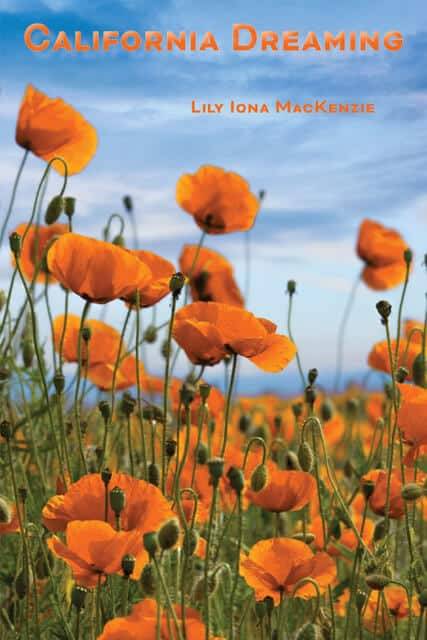
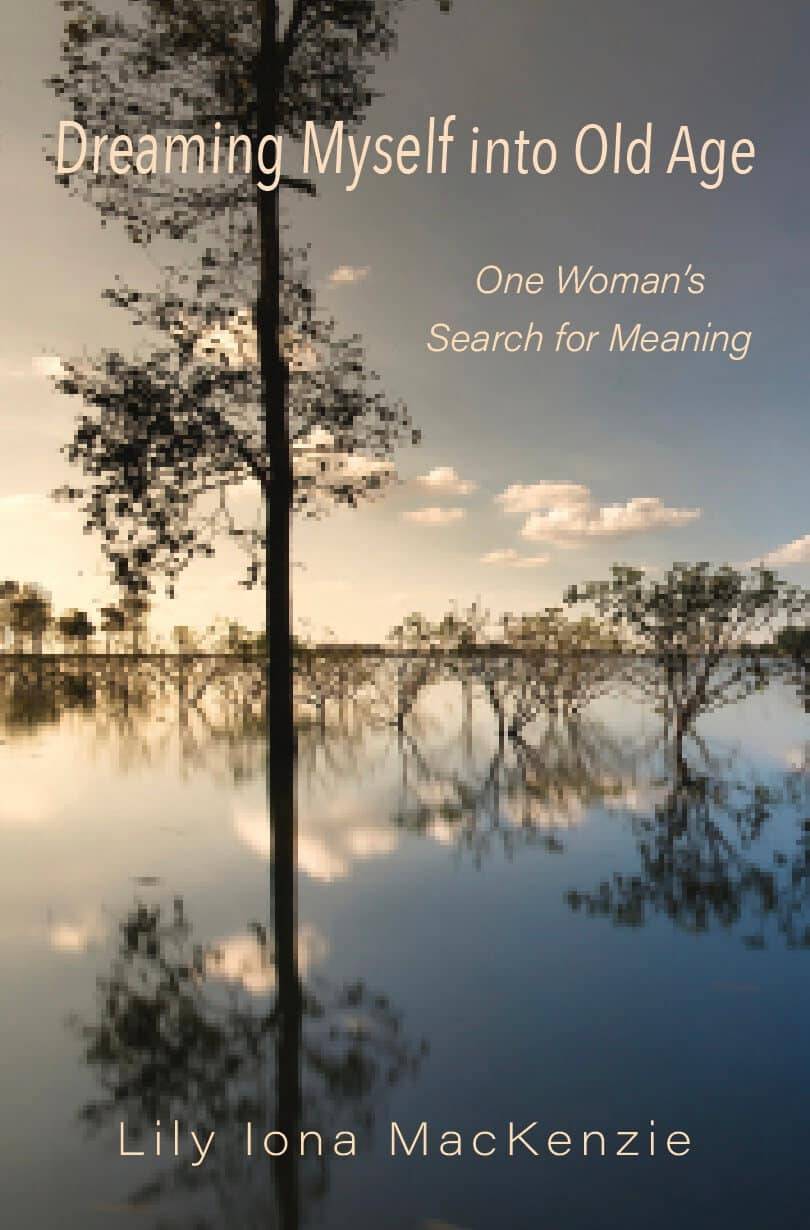
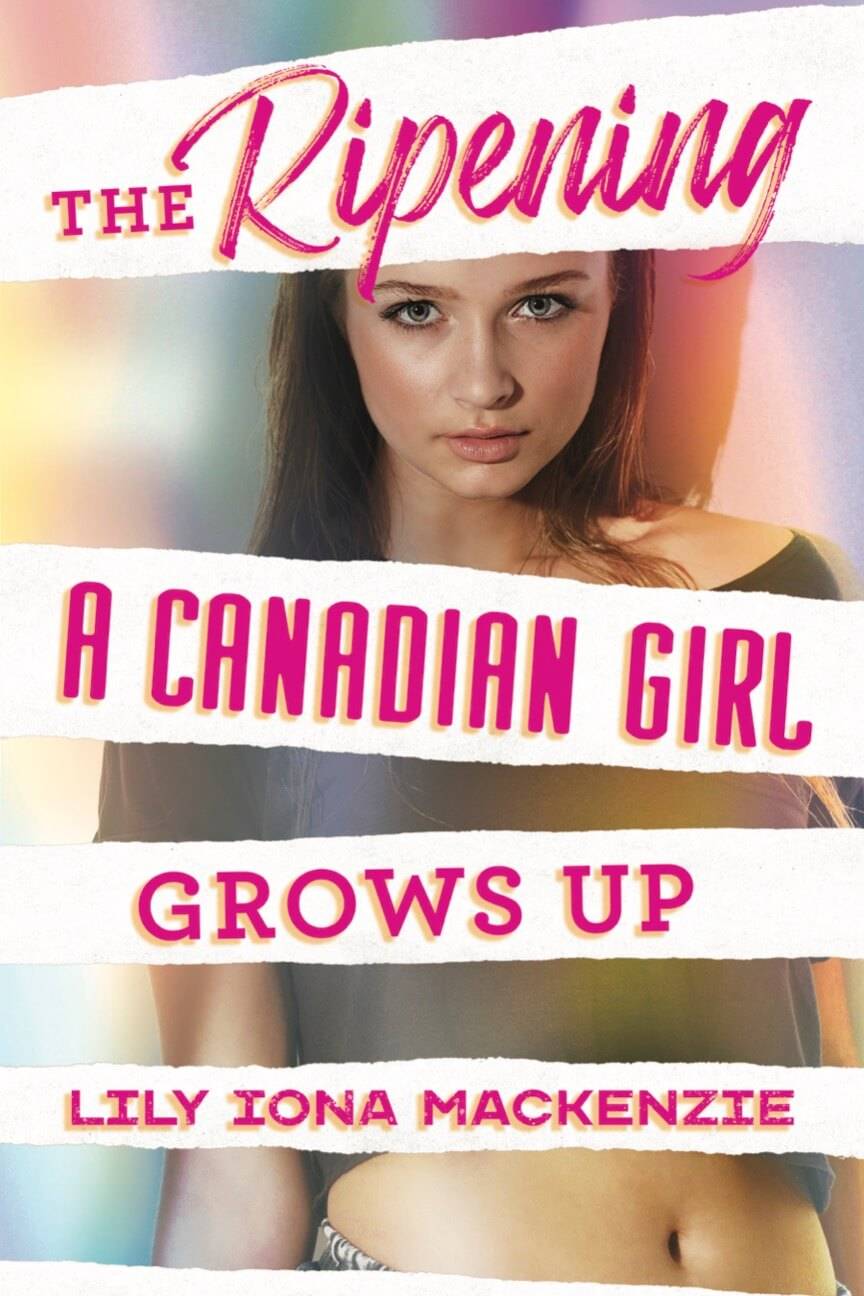
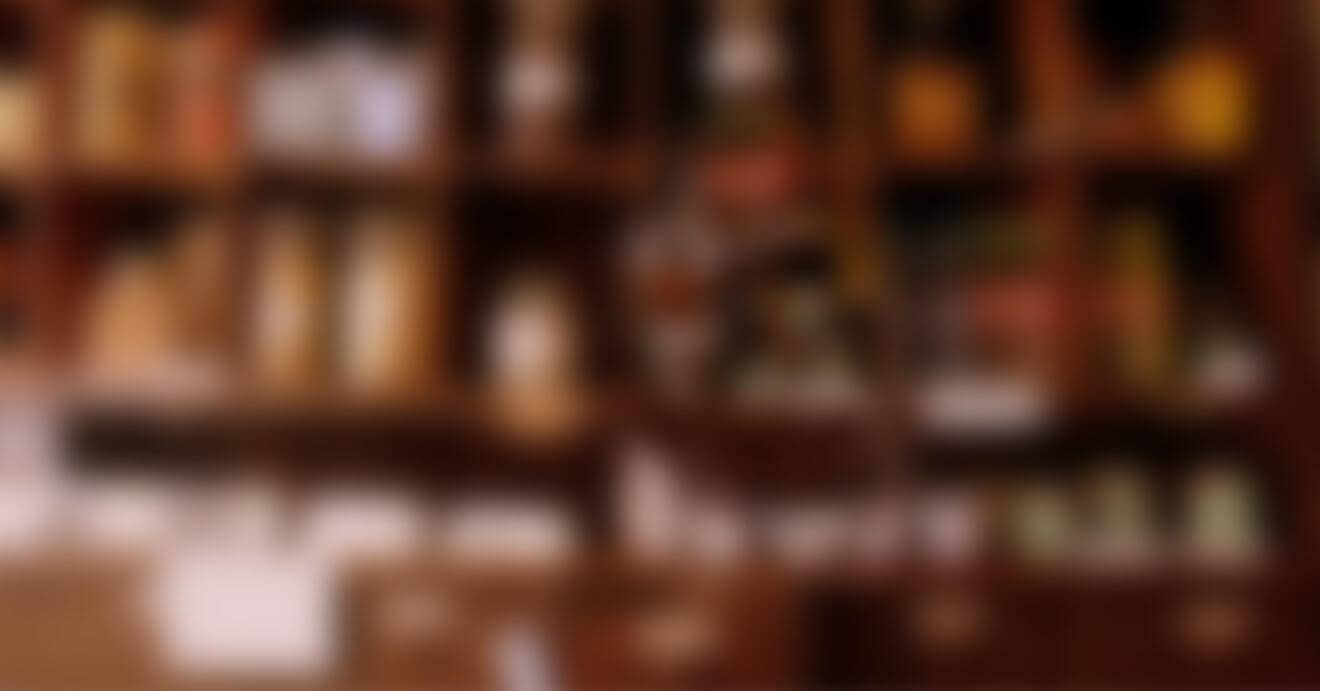
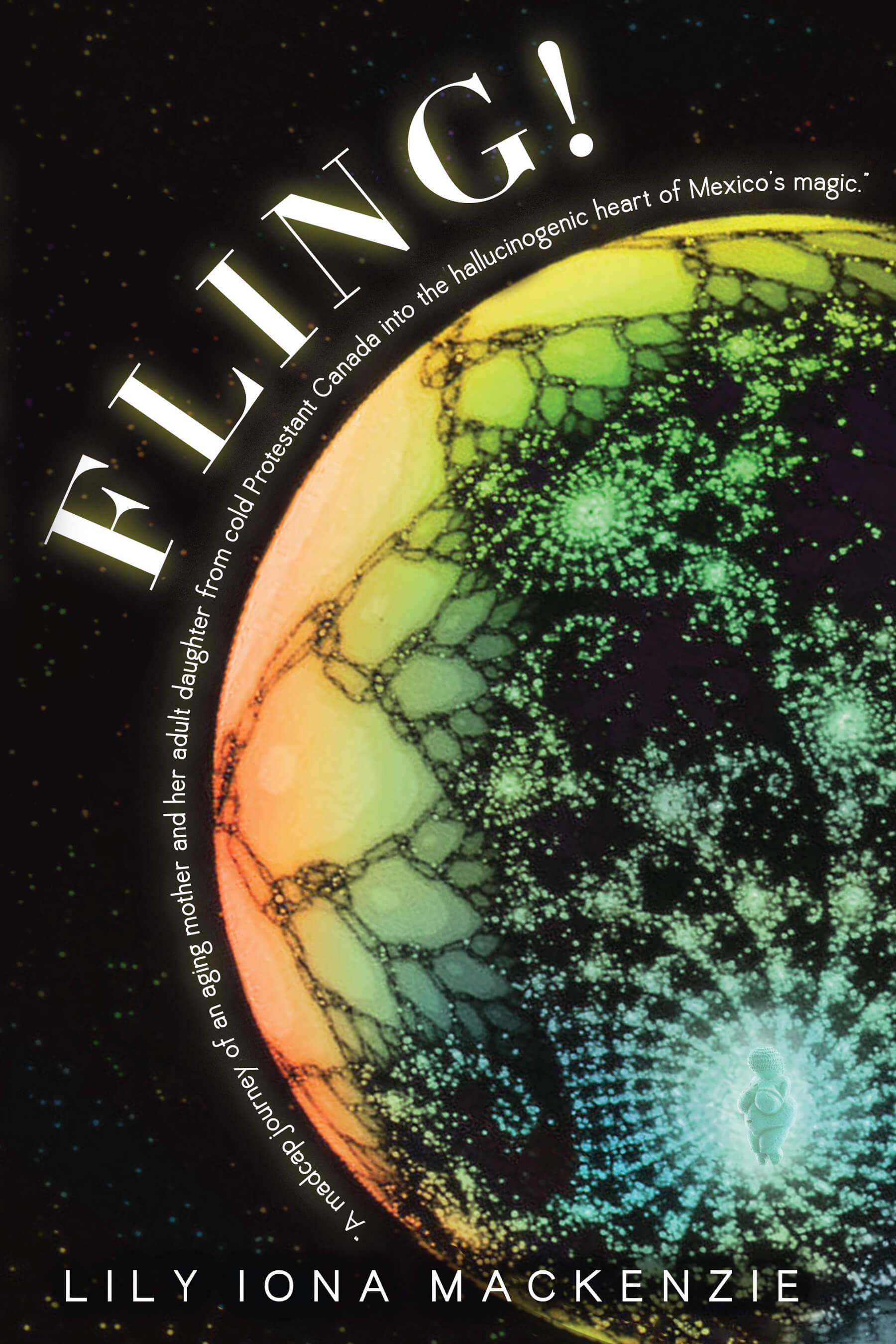
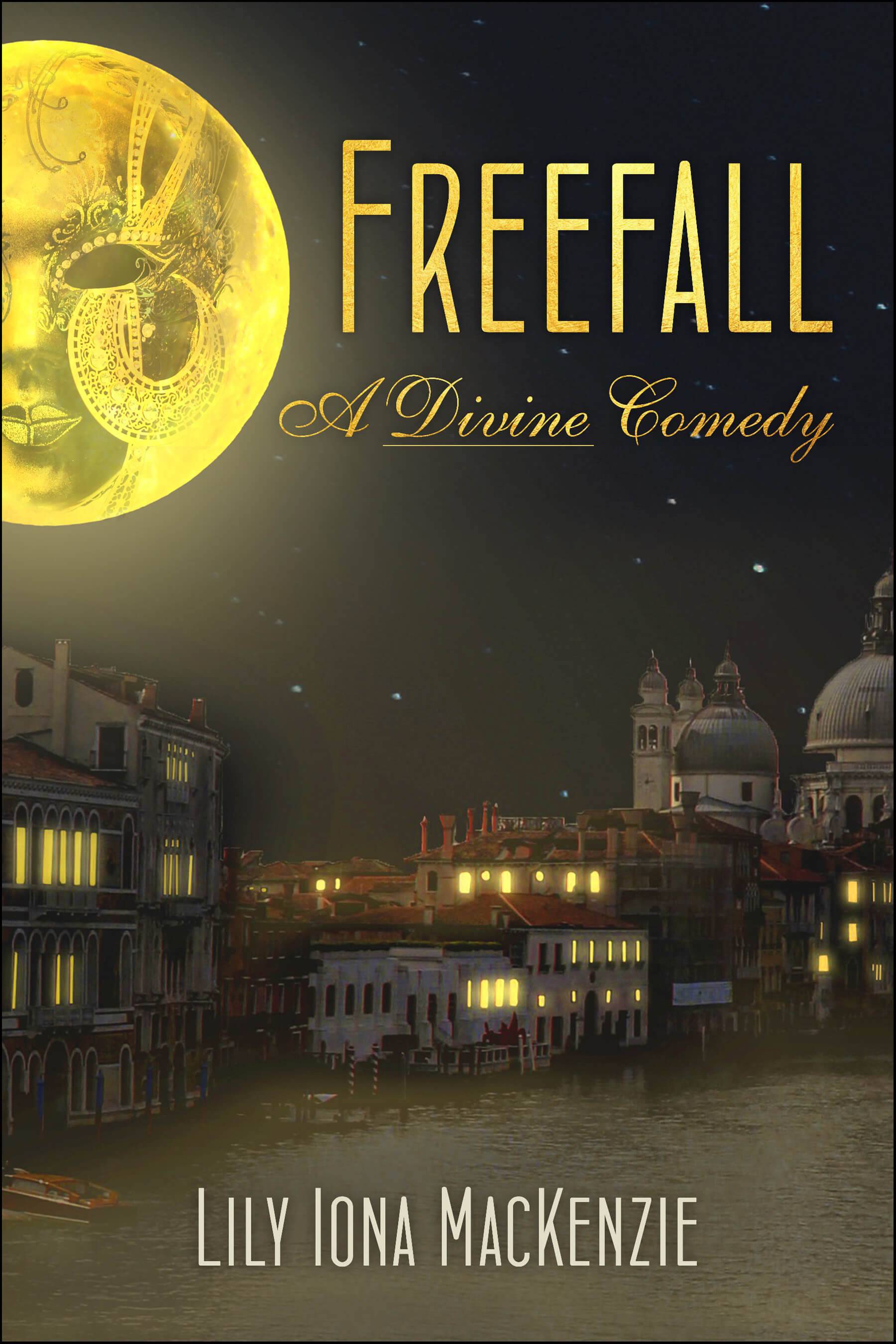

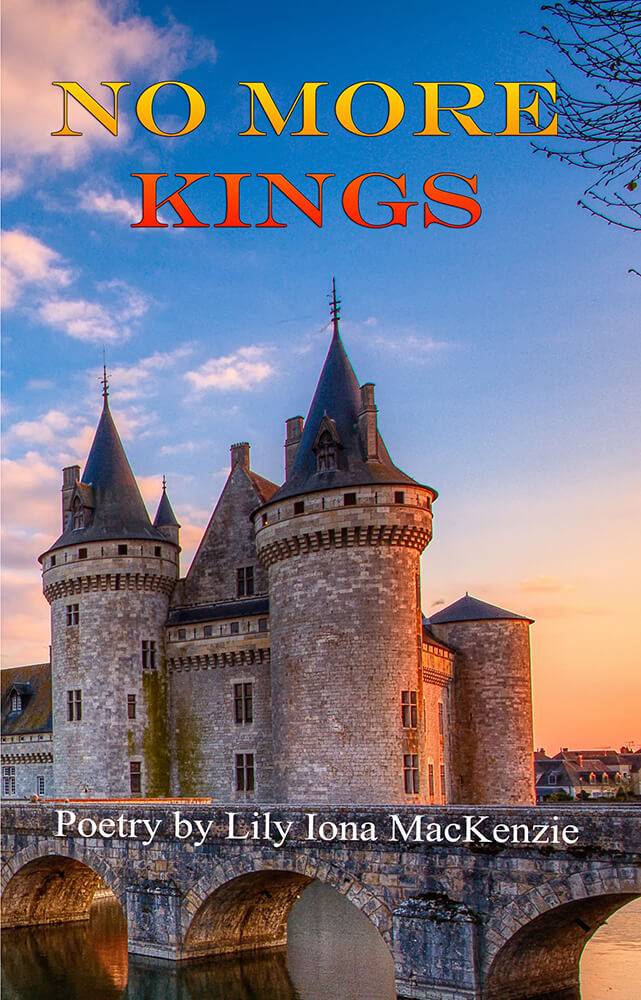


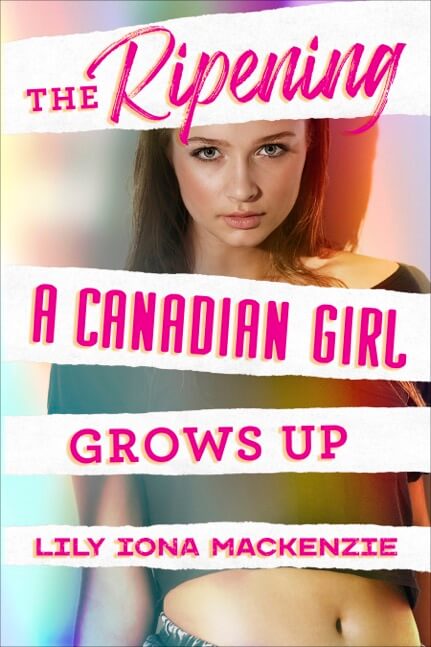

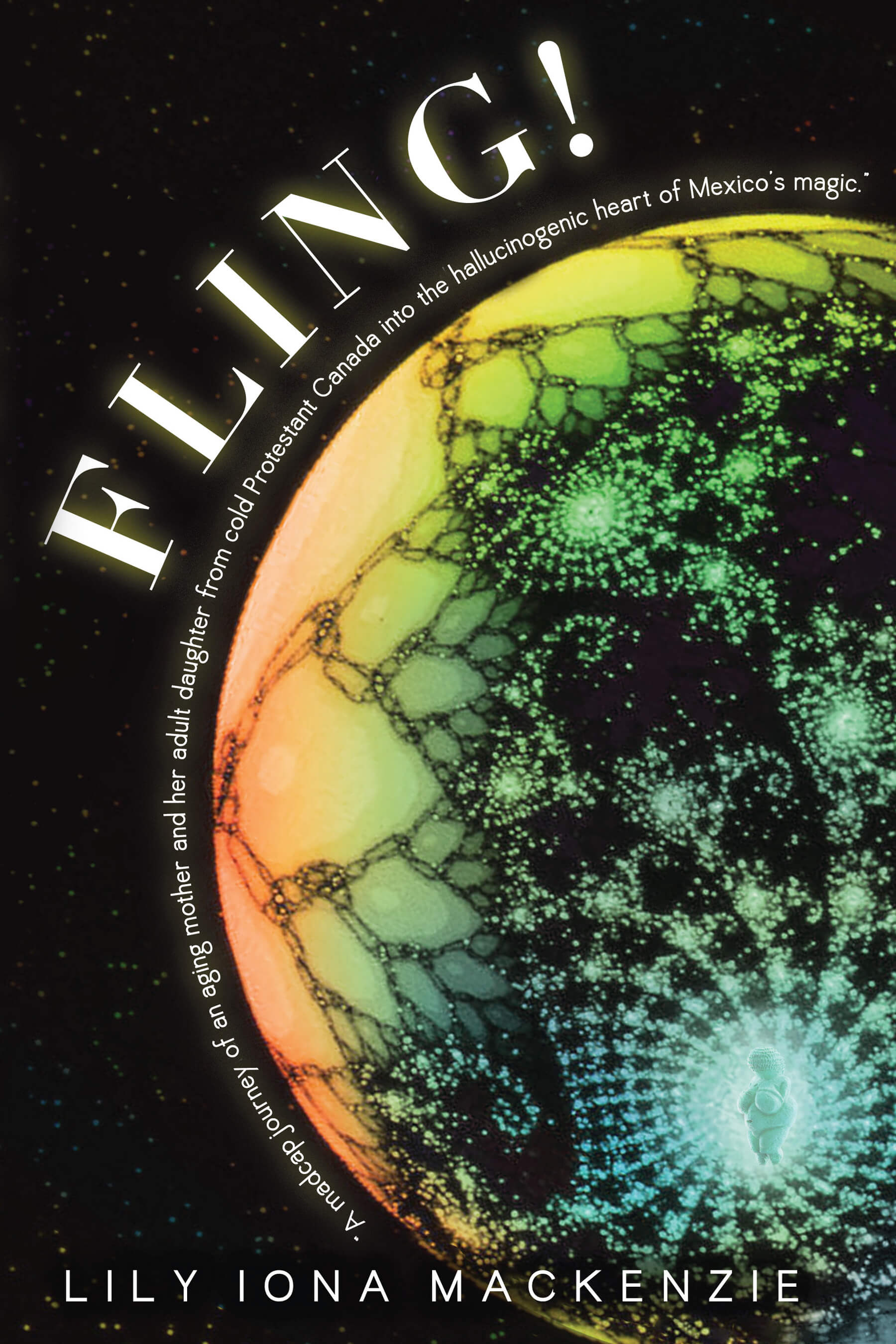
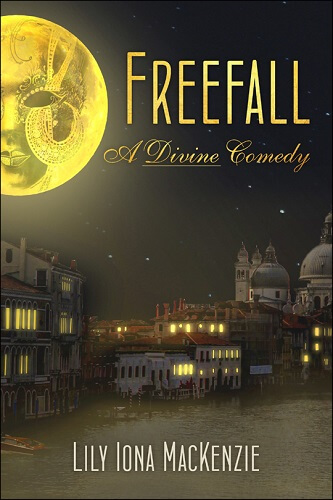
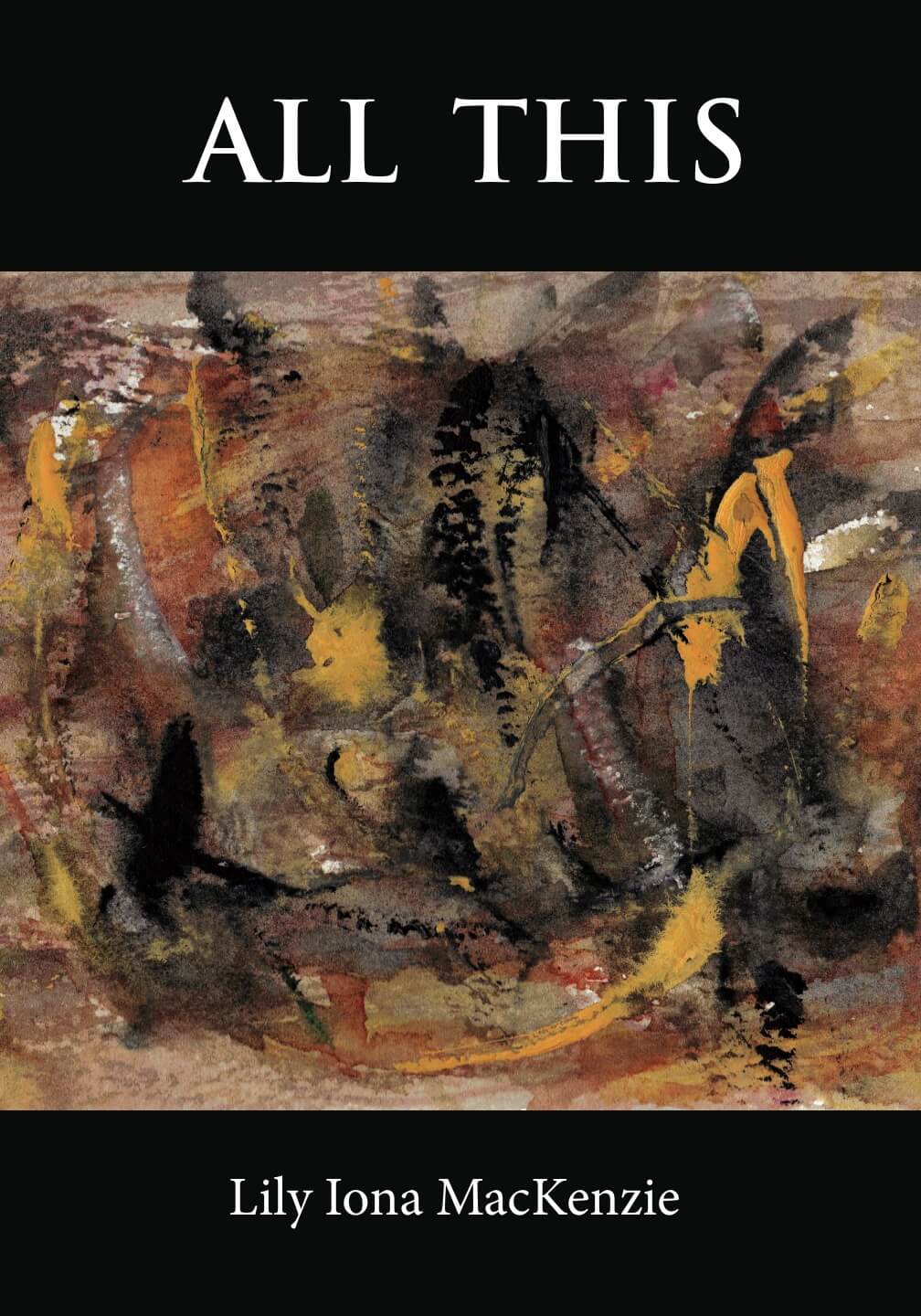

 I opened the I Ching at random this morning and came up with #38, K’uei / Opposition. The commentary says it is common for two opposites to exist together, needing to find relationship. I realize an opposition is being set up just in the act of writing my memoir Drop Out: my inner writer will be observing everything I do closely and recording what she finds valuable. I’m reminded of a review of Journey into the Dark: The Tunnel by William Gass that appeared in The New York Times Book Review:
I opened the I Ching at random this morning and came up with #38, K’uei / Opposition. The commentary says it is common for two opposites to exist together, needing to find relationship. I realize an opposition is being set up just in the act of writing my memoir Drop Out: my inner writer will be observing everything I do closely and recording what she finds valuable. I’m reminded of a review of Journey into the Dark: The Tunnel by William Gass that appeared in The New York Times Book Review:  “Writing is like prostitution. First you do it for the love of it, then you do it for a few friends, and finally you do it for money.” —Molière
“Writing is like prostitution. First you do it for the love of it, then you do it for a few friends, and finally you do it for money.” —Molière In addition to writing adult fiction and non-fiction, I also create pieces for children. Today, I tried to start a children’s story of a girl sleeping in an elegant dollhouse based on a dream image that has stayed with me. But after a few sentences, I felt extremely critical of what I had written. I had to stop. For now. Let it breathe, I said to myself. Let the criticalness soften—fall away.
In addition to writing adult fiction and non-fiction, I also create pieces for children. Today, I tried to start a children’s story of a girl sleeping in an elegant dollhouse based on a dream image that has stayed with me. But after a few sentences, I felt extremely critical of what I had written. I had to stop. For now. Let it breathe, I said to myself. Let the criticalness soften—fall away.  At a recent poetry reading I gave, I was asked if I wrote for a particular ideal reader, something I hadn’t given much thought to. So here is my response to that question, though I’m sure other writers will approach it differently.
At a recent poetry reading I gave, I was asked if I wrote for a particular ideal reader, something I hadn’t given much thought to. So here is my response to that question, though I’m sure other writers will approach it differently.  Ellen Birkett Morris is the author of
Ellen Birkett Morris is the author of  Mimi Herman is the author of The Kudzu Queen, A Field Guide to Human Emotions, and Logophilia. Her novel The Kudzu Queen was selected by The North Carolina Center for the Book for the 2023 Library of Congress “Great Reads from Great Places” program and longlisted for the Center for Fiction First Novel Prize. Her writing has appeared in LitHub, Michigan Quarterly Review, Shenandoah, Crab Orchard Review and many other journals. Mimi is a member of the Board of Directors for the Association of Writers & Writing Programs, a Kennedy Center Teaching Artist, a Warren Wilson MFA alumna, and a Hermitage Artist Retreat Fellow. She directs weeklong Writeaways writing workshops in France, Italy, Ireland, New Mexico and online. For more information visit her at
Mimi Herman is the author of The Kudzu Queen, A Field Guide to Human Emotions, and Logophilia. Her novel The Kudzu Queen was selected by The North Carolina Center for the Book for the 2023 Library of Congress “Great Reads from Great Places” program and longlisted for the Center for Fiction First Novel Prize. Her writing has appeared in LitHub, Michigan Quarterly Review, Shenandoah, Crab Orchard Review and many other journals. Mimi is a member of the Board of Directors for the Association of Writers & Writing Programs, a Kennedy Center Teaching Artist, a Warren Wilson MFA alumna, and a Hermitage Artist Retreat Fellow. She directs weeklong Writeaways writing workshops in France, Italy, Ireland, New Mexico and online. For more information visit her at  writing isn’t going well, and I need to create order somewhere, even if it’s not appearing on the page. I’m an overachiever, so the problem with housekeeping and me is that I’ll start out cleaning the bathtub, and end up replacing the plumbing. As for personal hygiene, you’ll be relieved to know that I tend to keep that up pretty well, no matter how the writing is going.
writing isn’t going well, and I need to create order somewhere, even if it’s not appearing on the page. I’m an overachiever, so the problem with housekeeping and me is that I’ll start out cleaning the bathtub, and end up replacing the plumbing. As for personal hygiene, you’ll be relieved to know that I tend to keep that up pretty well, no matter how the writing is going. One of the best things about being a writer is that you can take your work with you no matter where you go. Of course, this is true now for lots of jobs because of Zoom and the internet and the acceptance of hybrid work. But a writer has always been a
One of the best things about being a writer is that you can take your work with you no matter where you go. Of course, this is true now for lots of jobs because of Zoom and the internet and the acceptance of hybrid work. But a writer has always been a I recently read the book Words as Eggs by Jungian analyst Russell Lockhart. The idea for the work, and the chapter from which the title comes, originated in one of Lockhart’s dreams. A voice in his dream said “Do you not know that words are eggs, that words carry life, that words give birth?” (92).
I recently read the book Words as Eggs by Jungian analyst Russell Lockhart. The idea for the work, and the chapter from which the title comes, originated in one of Lockhart’s dreams. A voice in his dream said “Do you not know that words are eggs, that words carry life, that words give birth?” (92).  A writing friend of mine has papered her bathroom with rejection slips. Viewed in that context, they become less weighty and are put into perspective. As writers, we tend to think of rejections from publishers as negative. But rejections can be gifts in disguise, offering us a way to make lemonade out of lemons.
A writing friend of mine has papered her bathroom with rejection slips. Viewed in that context, they become less weighty and are put into perspective. As writers, we tend to think of rejections from publishers as negative. But rejections can be gifts in disguise, offering us a way to make lemonade out of lemons.  Small presses don’t have the reputation that larger presses do of maintaining high editorial standards. But my experience with these presses, especially Regal House, the one that published
Small presses don’t have the reputation that larger presses do of maintaining high editorial standards. But my experience with these presses, especially Regal House, the one that published  Sometimes I get stuck in feeling I must complete something I’m working on. Or must make a scene into a story rather than just letting myself have fun with the writing. I get too bogged down in the heavy stuff of being a writer. I’ve discovered that to get unstuck, I need to push aside my concerns and just write whatever is surfacing in the moment that wants to be heard. That freedom then allows me to dig into a draft I’ve gotten stuck in and usually enables me to make progress again.
Sometimes I get stuck in feeling I must complete something I’m working on. Or must make a scene into a story rather than just letting myself have fun with the writing. I get too bogged down in the heavy stuff of being a writer. I’ve discovered that to get unstuck, I need to push aside my concerns and just write whatever is surfacing in the moment that wants to be heard. That freedom then allows me to dig into a draft I’ve gotten stuck in and usually enables me to make progress again.  I continue to learn from the journals I kept almost 40 years ago.
I continue to learn from the journals I kept almost 40 years ago. I’ve been rereading journals I wrote almost 40 years ago that still have relevance. I had attended a writing workshop at Wellspring, a former retreat center in Philo, CA. The property had the Navarro River passing through it, as well as several rustic but delightful cabins for guests. For me, the focus on writing was important, but my main reason for being there was the exposure to nature. I was enjoying my time at this Wellspring workshop and being immersed for the weekend in nature.
I’ve been rereading journals I wrote almost 40 years ago that still have relevance. I had attended a writing workshop at Wellspring, a former retreat center in Philo, CA. The property had the Navarro River passing through it, as well as several rustic but delightful cabins for guests. For me, the focus on writing was important, but my main reason for being there was the exposure to nature. I was enjoying my time at this Wellspring workshop and being immersed for the weekend in nature.  My interest in fairy tales has been revived from reading my journals from forty years ago. At that time, I was investigating the art fairy tale. The Grimm’s fairy tales grew out of the oral tradition, but ones that Hans Christian Andersen and others wrote are part of the art fairy tale genre. I was interested then in exploring that mode in my own writing. I’d discovered that some of the stories I’d created fit there. Discovering this accepted category had heartened me to be do more of them and to believe in their worth.
My interest in fairy tales has been revived from reading my journals from forty years ago. At that time, I was investigating the art fairy tale. The Grimm’s fairy tales grew out of the oral tradition, but ones that Hans Christian Andersen and others wrote are part of the art fairy tale genre. I was interested then in exploring that mode in my own writing. I’d discovered that some of the stories I’d created fit there. Discovering this accepted category had heartened me to be do more of them and to believe in their worth.  My husband and I like to travel when we have the time and money. We’ve managed to visit St. Petersburg, Moscow, the Atlas Mountains in Morocco, Marrakech, Fes, Rabat, Istanbul, the entire Aegean/Mediterranean coast off Turkey, Norway, Sweden, Denmark, and many other countries.
My husband and I like to travel when we have the time and money. We’ve managed to visit St. Petersburg, Moscow, the Atlas Mountains in Morocco, Marrakech, Fes, Rabat, Istanbul, the entire Aegean/Mediterranean coast off Turkey, Norway, Sweden, Denmark, and many other countries.  My novel
My novel My husband and I like to travel when we have the time and money. We’ve managed to visit St. Petersburg, Moscow, the Atlas Mountains in Morocco, Marrakech, Fes, Rabat, Istanbul, the entire Aegean/Mediterranean coast off Turkey, Norway, Sweden, Denmark, and many other countries.
My husband and I like to travel when we have the time and money. We’ve managed to visit St. Petersburg, Moscow, the Atlas Mountains in Morocco, Marrakech, Fes, Rabat, Istanbul, the entire Aegean/Mediterranean coast off Turkey, Norway, Sweden, Denmark, and many other countries. 
 In contrast, Curva Peligrosa, from the novel of the same name that will be published in August 2017, didn’t have any connection to an actual person I have known. I just wanted to create a larger than life female character totally unlike me in almost every way. She is over six feet tall, amoral, fearless, powerful, and yet fully feminine. But it wasn’t until I stumbled on her name that she fully took shape in my mind.
In contrast, Curva Peligrosa, from the novel of the same name that will be published in August 2017, didn’t have any connection to an actual person I have known. I just wanted to create a larger than life female character totally unlike me in almost every way. She is over six feet tall, amoral, fearless, powerful, and yet fully feminine. But it wasn’t until I stumbled on her name that she fully took shape in my mind.![dangerous curves]](https://i0.wp.com/lilyionamackenzie.com/wp-content/uploads/2016/06/dangerous-curves.jpg?resize=295%2C231&ssl=1)
 In a recent interview, I was asked to discuss the cover art for Fling! and how it pertains to the story.
In a recent interview, I was asked to discuss the cover art for Fling! and how it pertains to the story.![NEWSacredGift_Front_4-8-15[4] copy](https://i0.wp.com/lilyionamackenzie.com/wp-content/uploads/2015/05/newsacredgift_front_4-8-154-copy.jpg?resize=198%2C300&ssl=1)
![Karen1[2]](https://i0.wp.com/lilyionamackenzie.com/wp-content/uploads/2015/03/karen12.jpg?resize=258%2C300&ssl=1)








